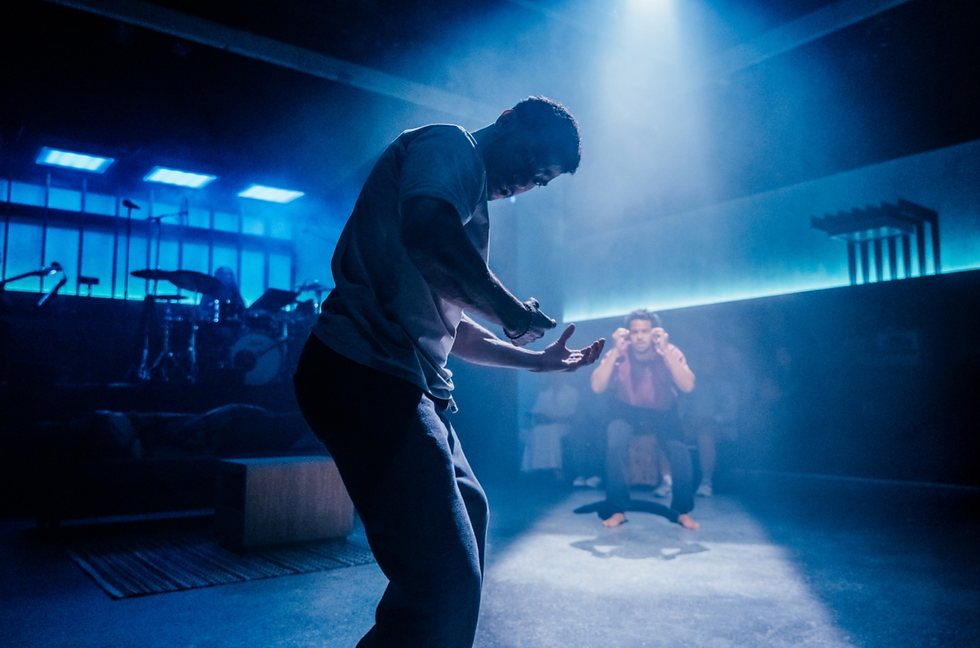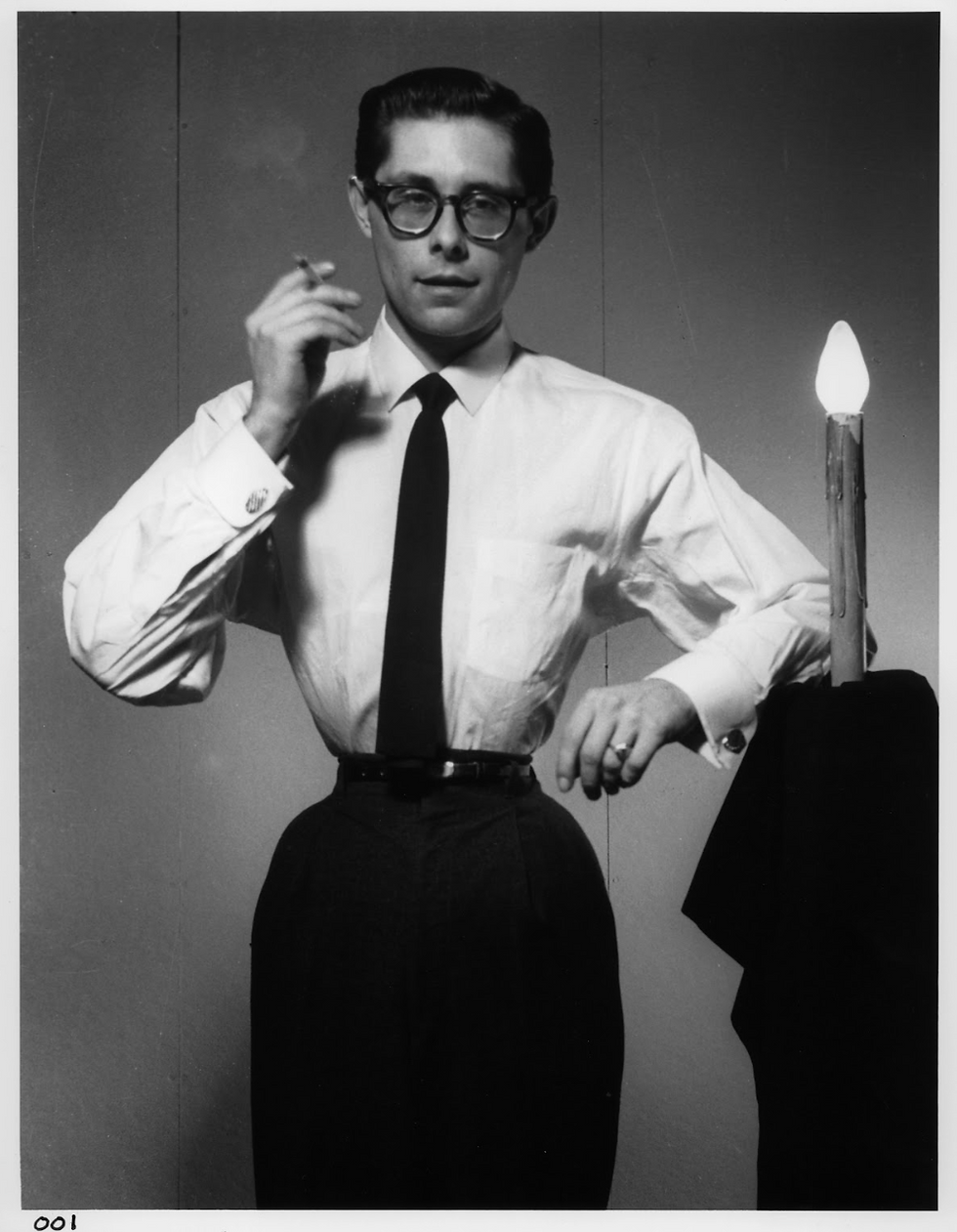Review: ‘littleboy/littleman’ at Geffen Playhouse
- Anita W. Harris

- Oct 11, 2025
- 3 min read
Updated: Oct 15, 2025

Infused with high energy of athletic acting supercharged by dynamic lighting and sound, the world premiere of “littleboy/littleman” at Geffen Playhouse tells of two brothers originally from Nicaragua making their way in Sweetwater, Fla. One is practical and driven while the other is a poet, dreamer and performer. Both try to uphold the legacies of their mother and grandmother as they clash over the “right” way forward in this tale of emerging identities.
Written by Rudi Goblen and dynamically directed by Nancy Medina, “littleboy/littleman” provides more of an immersive experience than a linear narrative. In the intimate arena of the Geffen’s Audrey Skirball Kenis Theater, the audience is first greeted by live music (composed by Goblen) with throbbing bass (Tonya Sweets) and drums (Dee Simone) while one of the performers, Marlon Alexander Vargas, energetically interacts with the audience, asking us to repeat words like “time” after he says “poem,” and slams poetry.

In this way, the production drops the pretense of a fourth wall, bringing the audience into the play, which unbeknownst to us has already begun as we learn that the character of Fito Palomino (Vargas) is a street performer who recites poetic stories about himself, his mother and his grandmother, punctuated by synced bass riffs, drumbeats and light pulses (designed by Scott Bolman).
We soon meet his older brother Bastian Monteyero (Alex Hernandez), more rigid in demeanor and authoritarian toward Fito. Through a series of scenes tonally differentiated through narrative style, lighting and sound (by UptownWorks’ Noel Nichols, Bailey Trierweiler and Daniela Hart), we come to know the brothers—who they are and how they got there.

Bastian has lined up a job for Fito cleaning bathrooms so his little brother can help pay rent and incidentally also pay for Bastian to legally change his name—to what we don’t yet know, but we do know that Bastian is eager to make it in America, having already mastered an impressive array of regional accents and references, from Wisconsin to Texas, to facilitate his job as a telemarketer.
The brothers banter amusingly but also bicker aggressively in both English and Spanish about Fito’s job, money, food and where they are headed. They also recount how they each experience nightmares of a home break-in that had devastated their family—made harrowing by strobe lighting, sound effects and their own reenacting movements—and how they suffered in schools and jobs from bullying due to being “Nicos,” including from other Central and South American immigrants.

In one poignant vignette, we see Bastian as a boy telling a white girl in his class about how he has written her many letters about his life. Owing to Hernandez’s heartfelt portrayal, the scene is moving for its vulnerability and innocent hopefulness in the wake of confusion and pain.
But later, we learn only through telling how Bastian had to care for his mother while Fito “left” to get work and send money home. The scene doesn’t have the same resonance, and it also seems unlikely of Fito given what we know of him.

Fito also at one point tells Bastian how cleaning feminine products from women’s bathrooms makes him realize his mother was a woman who had to juggle monthly menstruation with trying to feed and house them. It’s an interesting illumination but again more told than felt.
In these ways, while the play is genuinely affecting about the lives of these intrepid brothers, emotional nuance sometimes doesn’t land, perhaps also because the play’s pastiche structure precludes a sense of story. But the sheer dynamism of the acting, music, lighting and creative use of sound elevates the production to an immersive experience, allowing us to lose ourselves in a gripping American immigrant experience.
“littleboy/littleman” continues at the Geffen Playhouse’s Audrey Skirball Kenis Theater, 10886 Le Conte Ave., Los Angeles, through Nov. 2, with shows Wednesdays and Thursdays at 7:30 p.m., Fridays at 8 p.m., Saturdays at 3 p.m. and 8 p.m., and Sundays at 2 p.m. and 7 p.m. For tickets and information, call the box office at 310-208-2028 or visit GeffenPlayhouse.org. Run time is 90 minutes with no intermission.



Comments